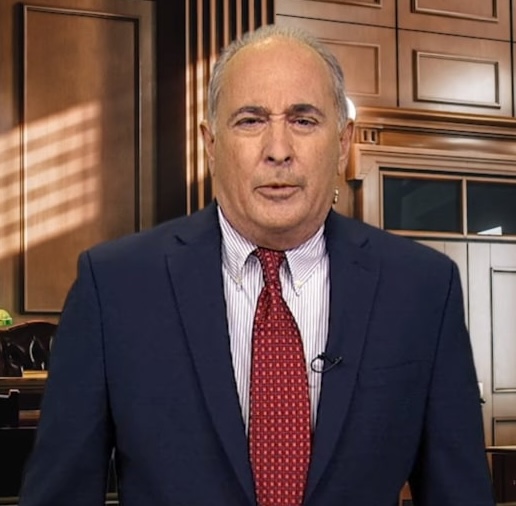
Obviously, where children are involved there is still some interaction among the parties. Significant amounts of money are spent on lawyers simply because the parties cannot get along even during the few moments it takes to pick up or drop off a child for visitation. Judges will sometimes have to lay out in great detail how exchanges regarding children shall take place. Third parties may be asked to assist in the situation, especially where supervised visitation is ordered. Supervised visitation may be necessary where one party proves that it is unsafe for the child to be alone with the other parent.
One of the most fertile grounds for legal battles involves child custody. (a term no longer used in Florida, the issue is about timesharing with the minor children) These contests can be as inexpensive or costly as the parties cause them to be. There is no presumption in favor of women in Florida with regard to timesharing with the minor children. In determining who is the more appropriate parent for the child to live with, Court's apply a "best interest" test. Occasionally, depending on age, the child may spend an equal portion of each week/month/year with each parent. But Courts do not favor this arrangement if it interferes with a child's schooling or emotional wellbeing. When timesharing battles concerning the minor children really heat up, psychologists, psychiatrists, and other experts may be brought in to examine all concerned and to help the Court in determining what is in the best interest of the child.
In general,Florida law utilizes a concept called Shared Parental Responsibility. Thus, even though the child may live with one parent, the other parent has equal say in how the child is brought up. Each party has input for example on issues relating to education, health, religion, discipline, etc, and as always, if the parties can't agree, the Judge will decide for them.
Visitation issues can also arise. Many parents will want to spend as much time as they can with their children. Courts generally try to strike a balance between the work schedule of the parents and the needs of the child. The goal of course is to foster a close and loving relationship with both parents. In this regard, completion of a Florida Divorce Parenting Class is required for parties with children. It should also be noted that except in limited situations, grandparents have no visitation (timesharing) rights in Florida. (a military member who is deployed for more than 90 days may, if their timesharing is materially affected by the deployment, designate someone such as a grandparent to exercise the timesharing on their behalf)
Florida law also contemplates parenting coordination. The purpose is to provide a dispute resolution process whereby a parenting coordinator assists the parents in creating a parenting plan by facilitating the resolution of disputes between the parents by providing education, making recommendations, and with prior approval of the parents and the court, making limited decisions within the scope of the court's order of referral. In any action in which a judgment or order has been sought or entered adopting, establishing or modifying a parenting plan, (except for certain domestic violence proceedings) and upon agreement of the parties, or the court's own motion or motion of a party, the court may appoint a parenting coordinator and refer the parties to parenting coordination to assist in the resolution of disputes concerning their parenting plan. Note that the court will determine the allocation of fees and costs for parenting coordination between the parties. The court may not order the parties to parenting coordination without their consent unless it determines that the parties have the financial ability to pay the parenting coordination fees and costs.
Note that parenting plans are mandatory. They are a document created to govern the relationship between the parents relating to decisions that must be made regarding the minor child and must contain a time sharing schedule for the parents and child. The issues concerning the minor child may include but not be limited to the child's education, health care, and physical, social and emotional well being. The parenting plan must be developed and agreed to by the parents and approved by the court, or established by the court if the parents cannot agree to a plan. (or the parents agreed to a plan that is not approved by the court)
A parenting plan recommendation means a non binding recommendation concerning one or more elements of a parenting plan made by a court appointed mental health practitioner or other professional designated under law. In any action where the parenting plan is at issue because the parents are unable to agree, the court may order a social investigation and study, The agency, staff or person conducting the investigation must furnish the court and all parties a written study containing recommendations.
Another important issue arises when a parent wishes to relocate to another geographic area with the parties' minor child or children. There are some very specific rules that apply in this situation. Relocation basically means a move of more than fifty miles for a period of sixty consecutive days or more. Parents may agree to a relocation. Unless there has been such an agreement to the relocation, a parent wishing to relocate must file a petition to relocate in the form and with the information required by the statute. There is then a deadline for filing a response to the proposed relocation. (any objection to relocation must be according to the statute) Relocation with the child or children without following the statutory requirements may subject the party to contempt, an order for return of the child, and other consequences.
The court may also, prior to the final hearing in the case, temporarily restrain a parent from relocating, or temporarily allow the relocation. In assessing a request for either a temporary or permanent relocation, there are numerous factors in the statute which the court must consider in deciding whether the move is in the best interest of the children. If the relocation is granted, the court can of course order contact with the non relocating parent, including access, visitation, telephone, internet, webcam and other arrangements sufficient to ensure frequent and meaningful contact with the non relocating parent. The court will also specify how transportation costs will be allocated between the parents.

